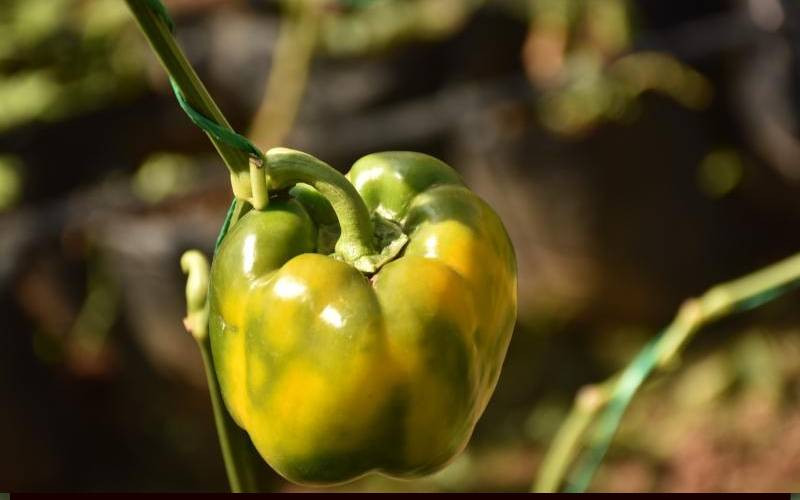Will Gen Z claim untapped farming goldmine?

I was once a village boy in Homa-Bay County, Kenya. Today, I'm a medical doctor, a development finance specialist, an educationist, and a farmer. This journey has given me a unique perspective on one of Africa’s greatest paradoxes: we eat three times daily, sometimes even more depending on culture, yet our farmers who produce the food we eat, struggle to survive. Can you imagine how profitable the health sector would be if we fell sick three times a day and had to take pills or go to the hospital?
Last year, I made a decision that shows the power of modern farming. When weather forecasts predicted heavy El Niño rains and early advisories painted a grim picture, I chose not to plant. My neighbours who ignored the warnings or were unaware of this information watched helplessly as their crops were washed away. The previous season, I had a bumper harvest having used seeds that were tested for our type of soil. My neighbours started saying that they should just follow what the doctor is doing. This is just one example of how technology can benefit farmers.
During our recent webinar on digital agriculture at Regenesys Business School, industry leaders echoed what I have long believed: Africa’s agricultural sector is an untapped goldmine waiting to be awakened. Agriculture’s evolution tells a fascinating story. We began as hunters and gatherers (first agricultural revolution), progressed to crop domestication with ploughs and livestock breeding (second agricultural revolution), advanced to irrigation systems and improved plant breeding (third agricultural revolution), and now stand at the threshold of the fourth agricultural revolution, popularly known as of Agriculture 4.0— powered by artificial intelligence, Internet of Things, drones, big data, automation, and robotics.
The stakes couldn't be higher. By 2050, we will need 70% more food globally than we produce today to feed our growing population. Traditional farming methods won’t meet this demand. We need a revolution, and Gen Zs must lead it. Yet, here lies the tragic disconnect: while food imports drain African economies and our fertile soil remains underutilised, most Gen Zs flee farms for overcrowded cities, often ending up worse off than if they'd stayed in agriculture. They dismiss farming as “old people’s work” while overlooking its enormous potential.
The economic imbalance in agriculture is equally troubling. We eat multiple times a day yet farmers remain poor. How can something in such constant demand be so unprofitable for its producers? Consider the tomato value chain in Kenya, for instance. During harvest season, prices plummet by nearly 60%, creating massive waste. When the season ends, prices skyrocket. Meanwhile, Kenya imports tomato paste despite having the capacity to process it locally. This instability crushes farmer incomes and creates food insecurity.
Agriculture 4.0 offers powerful solutions. Through precision farming—using real-time data to guide decisions— farmers can reduce input costs by 30% while increasing productivity by 40%. They can also minimise food waste, enhance climate resilience, and turn farming into a profitable industry.
Examples are already emerging. Climate-resilient crops are increasing yields despite unpredictable rainfall. Innovative soil testing combined with traditional knowledge is helping farmers overcome drought conditions. These are glimpses of what's possible when we merge tradition with technology.
Kenya has piloted successful models where manufacturers create databases of farmers for specific crops. These farmers receive support throughout the entire growth cycle—from land preparation to guaranteed purchase at predetermined prices. This system works. What's missing is scale. We need more farmers organised into groups with negotiating power, financial institutions recognising contracts with off-takers as bankable security, and agricultural extension officers to connect more farmers to these opportunities.
The transformation we need isn’t just about how we farm—it requires a fundamental shift in how we think about food. We must see agriculture as a full value chain—production, processing, value addition, post-harvest handling, logistics, and getting food to the final consumer.
In the long run, we don't need the entire Gen Z on farms. Advanced countries reduce their farming population as more people move into service delivery. Agriculture 4.0 isn’t about getting everyone to dig in the soil. It’s about creating sophisticated value chains where Gen Z can apply their technological skills to revolutionise farming.
This modern agricultural ecosystem encompasses drone operators monitoring crop health, data analysts optimising water usage, logistics specialists reducing post-harvest losses, and marketing experts connecting farmers to global markets. It requires digital literacy and technical expertise across the entire value chain.
The transformation demands systemic change—from policy formulation to the African education system, from curriculum design to how students are guided toward agricultural careers. The African education system needs to prepare young people for tomorrow's food economy.
The current disconnect between Gen Z unemployment and agricultural potential is a tragic waste of opportunity. Africa has many Gen Zs desperate for meaningful work, while our agricultural sector begs for innovation and energy. They need to stop seeing agriculture as their last resort. Today’s farming involves satellites, sensors, and smartphones as much as seeds and soil.
Africa stands at a critical juncture. We can lead the next global food revolution or continue depending on imports. We can transform agriculture from subsistence to abundance and convert idle land into thriving enterprises.
Stay informed. Subscribe to our newsletter
The ingredients for success are already here: Africa has the land, we have the energetic population, and the world needs the food. What remains is for policymakers to create enabling environments, for financial institutions to back agricultural entrepreneurs, and for our Gen Z to see farming as the next frontier.











